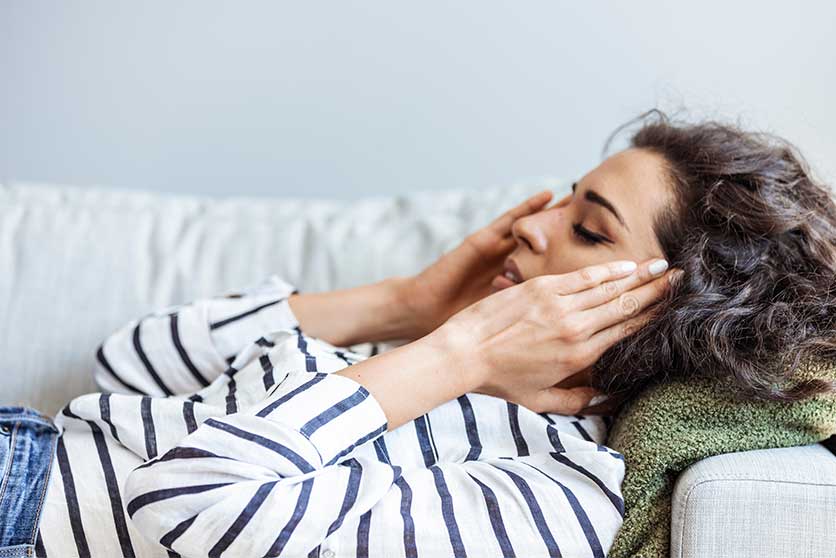What Does A Vicodin High Feel Like?

Medically Reviewed By: Manish Mishra, MBBS
A Vicodin high can make you feel sluggish, sleepy, euphoric, and numb. Abusing pain relievers such as Vicodin to get high can lead to health conditions such as drug addiction, opioid withdrawal, and overdose.

A Vicodin high can make you feel drowsy, relaxed, and euphoric. After coming down from a Vicodin high, you may also feel sleepless, muscle aches, and cravings for the drug.
Vicodin is a brand-name prescription opioid that contains hydrocodone and acetaminophen. Its legal uses include the treatment of chronic pain and severe pain. Vicodin has a high potential for substance abuse due to its sedative and analgesic (pain relief) effects.
Abusing opiate painkillers such as Vicodin, Norco, and Lortab to get high can be harmful to your health. If you or a loved one are struggling with pain medication addiction, you may benefit from a personalized treatment program.
Effects Of A Vicodin High
Getting high on Vicodin can cause euphoria and pain relief, as well as side effects such as:
- sedation
- impairment
- drowsiness
- constipation
- lightheadedness
Causes Of A Vicodin High
A Vicodin high occurs when large amounts of hydrocodone bind to opioid receptors in your central nervous system (CNS). These receptors cause pain relief by releasing large amounts of the neurotransmitter dopamine.
Taking large doses of Vicodin, or taking Vicodin in an unapproved manner such as snorting, plugging, smoking, or injecting, can lead to a Vicodin high. These methods of use are considered forms of illicit prescription drug abuse.
Doctors prescribing pain medications may request your medical history to determine your risk of abusing Vicodin. Vicodin can also be sold on the street and abused in unsupervised environments.
Dangers Of Getting High On Vicodin
The short-term and long-term health risks of getting high on Vicodin may not outweigh the temporary benefits of pain relief and euphoria. The positive effects of Vicodin may also decrease over time with heavy drug use.
Opioid Overdose
Getting high on Vicodin involves heavy opioid use in a short period of time. This form of Vicodin use can lead to an increased risk of drug overdose. Signs of a Vicodin overdose may include:
- trouble breathing (respiratory depression)
- low blood pressure
- slow or irregular heart rate
- clammy skin
- gurgling noises
- loss of consciousness
If you see these signs in a loved one, call for help immediately.
Harm reduction programs in Ohio may distribute naloxone, a drug that can reverse the life-threatening effects of an opioid overdose. You can give naloxone to an overdose victim even if you are not a medical professional.
Vicodin also contains acetaminophen, which can cause liver damage or liver failure in high amounts.
Vicodin Addiction Treatment Options
Getting high on Vicodin increases your risk of substance use disorder compared to taking Vicodin as directed.
Characteristics of an addiction to Vicodin may include physical dependence, a state where your body needs Vicodin to function.
Quitting Vicodin while dependent may lead to withdrawal symptoms such as insomnia, vomiting, and muscle aches. The severity of Vicodin withdrawal can lead to a relapse, further worsening your physical dependence.
Opioid addiction can be difficult to overcome without professional help.
For information on our personalized opioid medication addiction treatment program, which includes opioid detox, methadone and buprenorphine maintenance, and behavioral therapy, please contact Ohio Recovery Center today.
- Drug Enforcement Administration — Drug Fact Sheets https://www.dea.gov/factsheets
- Food and Drug Administration — Vicodin https://www.accessdata.fda.gov/drugsatfda_docs/label/2006/088058s027lbl.pdf
- National Institute on Drug Abuse — Prescription Opioids DrugFacts https://nida.nih.gov/publications/drugfacts/prescription-opioids
- Substance Abuse and Mental Health Services Administration — Preventing, Recognizing, and Treating Opioid Overdose https://www.samhsa.gov/medication-assisted-treatment/medications-counseling-related-conditions/opioid-overdosef

